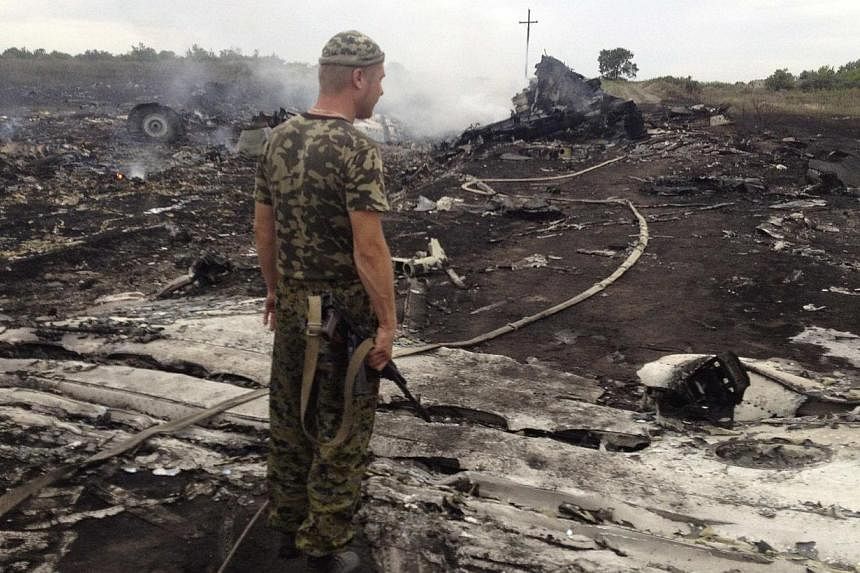BOTH the Ukrainian and Russian armed forces have a track record of accidentally destroying civilian airliners: back in 1983, the Soviet military - as it was then known - shot down a South Korean civilian Boeing 747 jumbo jet, while the Ukrainians accidentally downed a Russian civilian airliner in 2001. So, at least in theory, either side may be held responsible for the destruction of Malaysian Airlines' MH17 flight.
Still, all available circumstantial evidence points to Russian culpability for this latest tragedy. The key issue at play here is altitude. The Malaysian Airlines passenger jet was flying at approximately 10,000m when it went missing; That is far above the maximum intercept height for surface-to-air missiles which have previously been recorded in the hands of separatists, namely the Igla shoulder-fired rocket, and the Strela-10 vehicle.
Several weapons, and especially the BUK missile system manufactured by Russia, is capable of hitting aircraft at this height. At the end of last month, ethnic Russian rebels in Ukraine claimed to have "captured" a few BUK ground-to-air missile systems from the Ukrainian military, although the Ukrainians never reported any such losses. The missiles, also known in the West as the SA11, are big but highly mobile, and can reach to altitudes of 14km.
Yet, even if the rebels' claim to posses such weapons is correct, it would be impossible for them to use the missiles without the complex radar systems which pinpoint a target and which ensure that a missile reaches its objective. And such systems are only available to the Russian and Ukrainian governments.
Ukraine has no reason to shoot down any jet, whether by accident or design; throughout the current crisis, Ukrainian air defence systems were never activated, for the simple reason that the rebels opposing the Ukrainian government have no aircraft of their own, so the Ukrainian missiles would be useless. But Russia has every reason to use its anti-aircraft systems in support of ethnic Russian rebels and has already been identified as being behind the destruction of at least 6 previous Ukrainian military jets and helicopters; indeed, at one point in May Russia announced that it was imposing a "no-fly-zone" over the bit of Ukraine where the destruction of the MH17 flight now took place.
Furthermore, at about the same time as the Malaysian airliner went down yesterday afternoon Ukraine time, and in exactly the same area of Ukraine, Mr Igor Strelkov, the local commander of the ethnic Russian rebels, announced triumphantly in Russian-language social websites that his "soldiers" had downed a Ukrainian transport plane. No such plane has been damaged; the suspicion is that the rebels shot the Malaysian aircraft instead. The offending internet posting was quickly withdrawn, providing even more circumstantial evidence that the boast may be related to the destruction of the MH17 flight.
Given the fact that scores of United States and other western countries' intelligence satellites are already hovering over Ukraine, it is only a matter of time before electronic intelligence will be able to pinpoint with a high level of certainty where the missile came from; Nato already published earlier this week video clips purporting to show previous firings of Russian missiles into Ukrainian territory with the intention of hitting Ukrainian aircraft.
Should such evidence become available, Russian President Vladimir Putin has little hope of disassociating his country from the rebels, since the claim that the rebels could operate such sophisticated missile systems on their own will carry to credibility. Another round of sanctions against Russia will, therefore, become inevitable. And this time, most of the European countries which hitherto proved reluctant to impose sanctions will go along with their imposition.
The tragedy may also prompt the Ukrainian authorities to launch an all-out offensive against the rebels, this time with the full encouragement of the West. Either way, a crisis in a little-known corner of Europe has now claimed victims worldwide.

